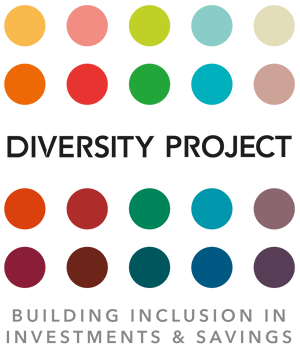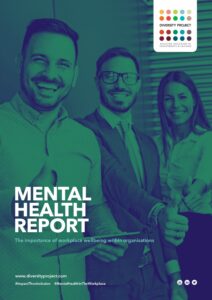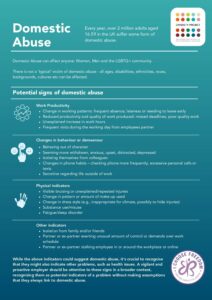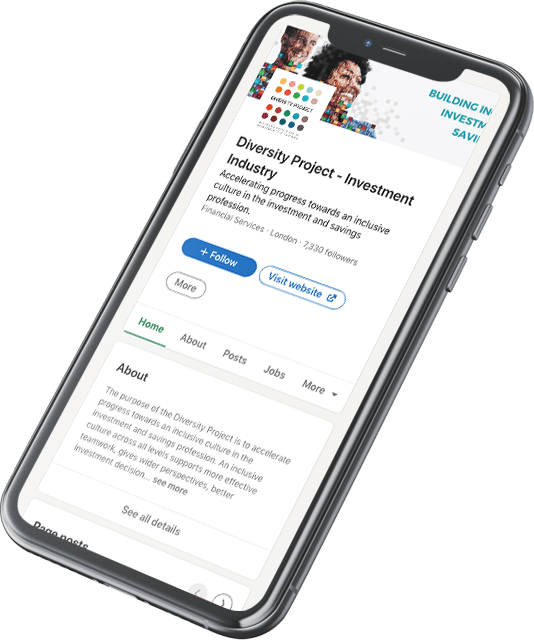Our objectives for 2023 are:
Build an online directory of mental wellness coaching and support providers:
– The listing will provide a summary of what is provided
– Potential for negotiating preferred rates for DP members
- Create a network for discussions – Chatham house rules
– Small group forum to openly discuss topical mental health issues impacting employers
- Host member events focussed on supporting the employer
– Education and signposting on the mental health issues experienced by DP dimensions
– Panel of experts to provide different perspectives
- Launch the Mental Health Benchmarking Survey
– Examples and case studies of best practice as well as experiences of what has not worked
To see our full Mental Health aims and objectives, please click here
Glossary
What is mental health?
We all have mental health and it is just as important as our physical health. Your mental health doesn’t always stay the same. It can change as circumstances change and as you move through different stages of your life. We all have times when we feel down or stressed or experience anxiety. Most of the time the feeling pass. But sometimes they can develop into a more serious problem that can affect anyone.
What is good mental health?
Good mental health is not simply the absence of diagnosable mental health problems. It is characterised by a person’s ability to carry out a number of key functions and abilities such as learn; feel, express and manage a range of positive and negative emotions; form and maintain good relationships with others; cope with and manage change and uncertainty.
What is Wellbeing?
Wellbeing is personal and subjective and covers all the environmental factors that affect us and the experiences we have. It recognises aspects of our lives that we determine for ourselves through our own capabilities, how we feel about ourselves, the quality of our relationships with others and our sense of purpose.
What is mindfulness?
Mindfulness is the quality of being present and fully engaged in whatever we are doing at the moment, free from distraction or judgement. It means being aware of our thoughts and feelings without getting caught up in them. Mindfulness is a skill which can be learned and improved through meditation and practice. Check out this easy questionnaire to see how you score and where you could get to.
What is depression?
Depression is more than simply feeling unhappy or fed up for a few days. When you are depressed you feel this way persistently for a few weeks or months rather than just a few days. It is a real illness with real symptoms. It is not something you can simply ‘snap out of’ or ‘pull yourself together’. Many people with depression also have symptoms of anxiety.
What is anxiety?
Anxiety is a feeling or worry or fear that can be mild or severe. Everyone has feelings of anxiety at some point in their lives and in certain circumstances are normal and appropriate. But some people find it hard to control their worries. Their feelings of anxiety are more constant and can often affect their daily lives. The most common form is Generalised Anxiety Disorder but can also cover conditions such as Panic Disorder, phobias and Post Traumatic Stress Disorder.
Services
There are a number of services which everyone can access. In addition to this many people have private medical insurance provided by their employer or purchased themselves. These often include mental health support and counselling so please check your policy or talk to your HR department.
- Seek the advice and support of your GP. If you cannot do this and are in distress or need immediate help visit A&E
- Talk to the Samaritans. Their number is 116 123 and it is free, 24hours a day
- Text ‘Shout’ to 85258. They can help with arrange of mental health issues
- For practical advice on different types of therapy and medication, benefits, debt or money issues and your rights under the Mental Health Act call Rethink on 0300 5000 927
- Mind have an information line to answer questions about different types of mental health problem, where to get help, drug and alternative treatments and advocacy. Their number is 0300 123 3393. They also have a legal advice service 0300 466 6463
- Tell someone you trust what is going on with you
- Each borough has a Community Mental Health Team. Search online for the one that operates in your area
- There are also a number of online communities which people may benefit from
For Employees
Resources for help with mental health
Knowing what foods we should and shouldn’t be eating can be really confusing, especially when it feels like the advice changes regularly. However, evidence suggests that as well as affecting our physical health, what we eat may also affect the way we feel.
Improving your diet may help to:
- Improve your mood
- Give you more energy
- Help you think more clearly
Here are some ideas below:
- Mind UK: About food and mood
- Quarantine cooking club: Arrange a zoom/facetime/whatsapp call with a friend or group of friends and cook a meal together. No meal should be enjoyed alone.
- Plant based and Vegetarian option: https://deliciouslyella.com/recipes/
- BBC Good Food: https://www.bbcgoodfood.com/
- Joe Wicks, The Body Coach: https://www.thebodycoach.com/blog/cats/recipes?loadmore=true&pc=21#art11
- Wellness Apps: Calm,Headspace, Sanvello, Happify, Healthline)
- Mood checker
- Exercise
Sometimes searching for the right workout can be longer than the workout itself so we have provided you with some helpful apps and links below to get you motivated:
Nike Run Club: https://www.nike.com/gb/nrc-app
Strava: https://www.strava.com/
Couch to 5km: https://play.google.com/store/apps/details?id=com.phe.couchto5K&hl=en_GB
The Body Coach: https://www.youtube.com/channel/UCAxW1XT0iEJo0TYlRfn6rYQ
Women’s Health: https://www.youtube.com/channel/UCwGBV6mXtBB3O-rEQpevYHA/videos
Instagram Online: For any Instagram fans, most personal trainers and gyms are offering live workouts on their Instagram story. It might be worth giving your favourite celebrity PT a follow.
Podcasts
- Happy Place – Ferne Cotton – Fearne Cotton talks to incredible people about life, love, loss, and everything in-between as she reveals what happiness means to them
- Daily Meditation – Mary Meckley
- A Library of Meditations at Your Finger Tips. Be happy, healthy, more at peace, and sleep better as you’re greeted every morning with a daily guided meditation technique. Feel as though you’re seated next to your personal meditation teacher Mary Meckley as she takes you on a weekly journey to manage your emotions. New themes each week based on an emotion with different daily meditation techniques to manage stress triggers. You are so worth slowing down for.
- The Therapy Edit – Anna Mathur
- 10 min episodes brought to you by Psychotherapist, Anna Mathur. Find useful tips, insights and reflections to support your mental wellbeing.
- Calmer you Podcast – Chole Brotheridge
- Quiet the inner critic, calm your mind and move forwards with confidence. With Chloe Brotheridge, expert hypnotherapist, coach and author of The Anxiety Solution and Brave New Girl.
- Deliciously Ella – The podcast looks into the world of physical and mental health, wellbeing, the realities of building a business and a brand and staying positive in a busy world.
Books
- When Someone You Know Has Depression: Words to Say and Things to Do [amazon.co.uk]
- Living with a Black Dog [amazon.co.uk]
- How You Can Survive When They’re Depressed : Living and Coping with Depression Fallout [amazon.co.uk]
- Loving Someone with Anxiety: Understanding and Helping Your Partner [amazon.co.uk]
- Survivors and Partners [amazon.co.uk]
- Allies in Healing [amazon.co.uk]
- The Bipolar Disorder Survival Guide [amazon.co.uk]
- Loving Someone with Bipolar Disorder [amazon.co.uk]
- Overcoming Obsessive-Compulsive Disorder by David Veale [worldofbooks.com]
- The Compassionate Mind workbook – Chris Irons & Elaine Beaumont [wordery.com]
Good and Bad Habits
Good habits (not an exhaustive list). Good mental health habits are habits and routines you can implement to maintain and improve your mental health. Remember the stress container. Examples include:
- Eat a balanced diet. It is well known our gut bacteria synthesise around 95% of the serotonin the brain uses to regulate mood and activity
- Exercise regularly
- Go outside – sunlight and fresh air are mood enhancers and also help with vitamin D production
- Stay hydrated
- Laugh more – it doesn’t really matter what you are laughing at – within reason!
- Sleep well – the brain actually repairs itself during sleep
- Practice meditation
- Maintain good posture – another example of the physical linking with mental
- Take a break from technology. All technology!
- Keep a journal of your thoughts to help identify triggers and behaviour patterns
- Talk about it with people who care for you
- Get a pet. Not suitable for everyone but a possibility for some. Even a goldfish will do!
- Stop multi-tasking – it is exhausting and over-rated
- Consult a doctor and get a professional opinion. This is incredibly important as early intervention can dramatically shorten recovery times and improve outcomes
Bad habits (not an exhaustive list). Bad mental health habits are behaviours that have a negative effect on the way we think or the way we feel about ourselves. Examples include:
- Perfectionism
- Lack of exercise
- Excess and uncontrolled stress
- Anger
- Overuse of a smartphone
- Overuse of social media
- Procrastination, which can lead to ‘last minute’ behaviour and more stress
- Co-dependency and maintaining toxic relationships
- Poor sleep
- Poor or unbalanced diet
- Overuse of alcohol or other substances
- Buying things you don’t need
It stands to reason that it can sometimes be harder to break a bad habit than start or maintain a good one. Some of the examples I have listed may even seem strange or counterintuitive, such as shopping less.
But knowing what the unhelpful behaviours are and working towards eradicating them will have a beneficial impact on mental health.
For Employers
- Training and resources
- Mental Health First Aid (see below)
- Every Mind at Work
- City Mental Health Alliance
- BNY Mellon Case study
- CCLA Corporate Mental Health White Paper
- City Mental Health Alliance White Paper – Mental Health and Race at Work
Mental Health First Aid
What is Mental Health First Aid: Mental Health First Aid England is a social enterprise offering expert guidance and training to support mental health, in the workplace and beyond.
What they do: Their mission is to train one in ten people in mental health awareness and skills. They offer a wide range of face to face and digital learning to empower people to notice signs of mental ill health and encourage them to break down barriers, listen in a non-judgemental way and signpost to support for recovery. They provide training to organisations including workplaces; universities; schools and colleges and armed forces. Training employees to become mental health first aiders helps to provide additional support to employees with mental ill health and reduce stigma in the workplace.
For more information on how to train your employees to become mental health first aiders: https://mhfaengland.org/












